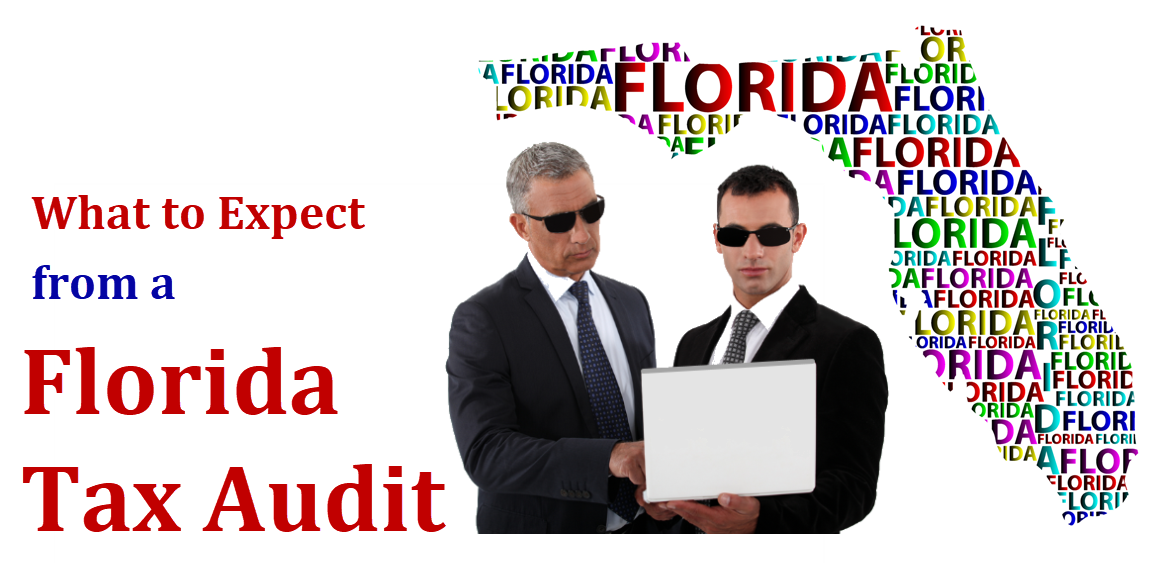
The day your business receives a DR-840 notice from the Florida Department of Revenue will be one that you won't soon forget. This is the state's infamous Notice of Intent to Audit Books and Records. Your first action might be to crumble up the notice, toss it on the floor, and yell, "Why me?" This might feel good, but it's not going to prevent the state from auditing your business.
So, what can you expect in the wake of receiving one of these notices? The state's revenue office has tried to help clear up any confusion and ease your mind by publishing its own outline of its auditing process. It promises that this is not going to be a frustrating or time-consuming experience. The truth is that you might find the road ahead both frustrating and time-consuming, particularly if you try to navigate this process without help.
Why You Need Florida Tax Audit Services
The notice of a tax audit can be intimidating at best and lead to expensive consequences in a worst-case scenario. Few business owners are entirely familiar with the tax law and the way that the audit process works. Similar to a legal proceeding, an auditor might try to get you to admit wrongdoing or provide information that they are not entitled to.
Attempting to handle a business tax audit without representation can be more costly than getting the help you need. There are penalties and fees that could be accrued if you don't have the right person as an advisor and advocate.
The best course of action is to have an experienced accounting professional in your corner that specializes in tax auditing and working with government entities. This can save your company time, frustration, and expense in the short and long-term. Even so, it helps to have an understanding of how a Florida tax audit works.
Notification of a Florida Tax Audit
The notification of a business tax audit in Florida will always come in the mail by way of a form DR-840. If you receive a phone call warning of an audit, it is a telemarketing scam. One of those forms, however, is the real deal and something that you'll need to take seriously.
The DR-840 will outline some pertinent information about your audit. This includes the taxes being audited, the timeline for the audit, and any relevant statute. There is also usually a request for information from your company.
You might wonder how you've been singled out for this attention from the Department of Revenue, and there are several possibilities. The department chooses its candidates for tax audits in a variety of ways. These include:
- Information from the IRS
- Information from other state agencies or other states
- Department of Revenue database information
- Business directories, publications, and journals
- Computer-based random selection
- Tips from other taxpayers
The reasons for these audits vary, but most occur because there is a suspicion of non-compliance of the state's tax code. Not everyone owes taxes at the end of a state audit, but this is commonly the case after a thorough review of business records.
What Happens During a Florida Tax Audit?
How your audit proceeds will depend on what type of audit the state orders. There are two possibilities - a Desk Audit and a Field Audit. A desk audit requires that you meet with the state's auditor in one of the local Department of Revenue offices. A field audit will take place at your business location.
Whichever type of audit the DOR demands, the agency can't force you to begin the process or turn information over in less than 60 days. This is according to state law. The agency might ask you to meet with them sooner, but you would be waiving your rights to that 60-day preparation period if you agreed.
The types of records that the auditor will want to review may include:
- Federal income tax returns
- State tax returns
- General ledgers and journals
- Depreciation schedules
- Property records
- Sales and purchase journals
- Resale certificates or a sales tax exemption
- Documentation that verifies figures on tax returns
The DOR can audit a business for a period of three years, or a longer period if you didn't file tax returns or filed returns that were substantially incorrect. If you cannot produce the required records, the auditor will estimate your tax liability based on the information that is available.
You have the right to know any basic findings or proposed changes as the audit proceeds. Once it is complete, you will receive a notice that contains the final findings. If you don't agree with them, you have just 30 days to notify the auditor of your disagreement. If you owe money, you will need to pay this immediately or make arrangements for a payment plan.
Florida Business Tax Audit Representation
While a tax auditor might appear to be helpful and even offer some suggestions, it would be a mistake to look at these officials as your friends. They aren't. For example, it's never a good idea to an invite an auditor to your workplace when this isn't a requirement. Also, avoid signing release forms or giving auditors access to electronic records, which could give them information that falls beyond the scope of the audit.
A Florida tax audit can range from a minor inconvenience to something that has grave consequences. In some cases, these auditors can ask for extensive and unnecessary documentation that opens even more doors for questions. If the officials decide that you violated Florida tax law, the penalties can include hefty fines and even jail time in some cases.
While this process might seem daunting, a knowledgeable tax professional can help you navigate and survive a tax audit in the best way possible.
If you have received one of these notices or would like to speak with an accountant about your situation, contact us now to learn how we can help.




